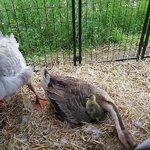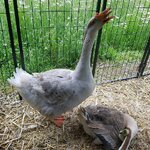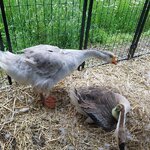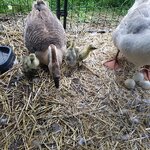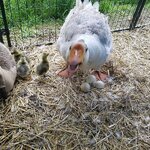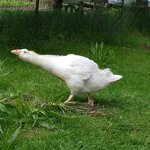- Messages
- 2,927
- Reactions
- 5,521
- Thread Starter
- #21
whenever our big gander gets aggressive to me, such as now with a goose nesting,
I just spread my arms wide - wider than his wings and yell "BIG HUGS - BIG HUGS"
and he runs the other way
when the kids were younger, he would attack them
so I told my daughter to wear my tall Muck Boots - all he saw was the big boots coming his way and he wouldn't chase her anylonger
I just spread my arms wide - wider than his wings and yell "BIG HUGS - BIG HUGS"
and he runs the other way
when the kids were younger, he would attack them
so I told my daughter to wear my tall Muck Boots - all he saw was the big boots coming his way and he wouldn't chase her anylonger






